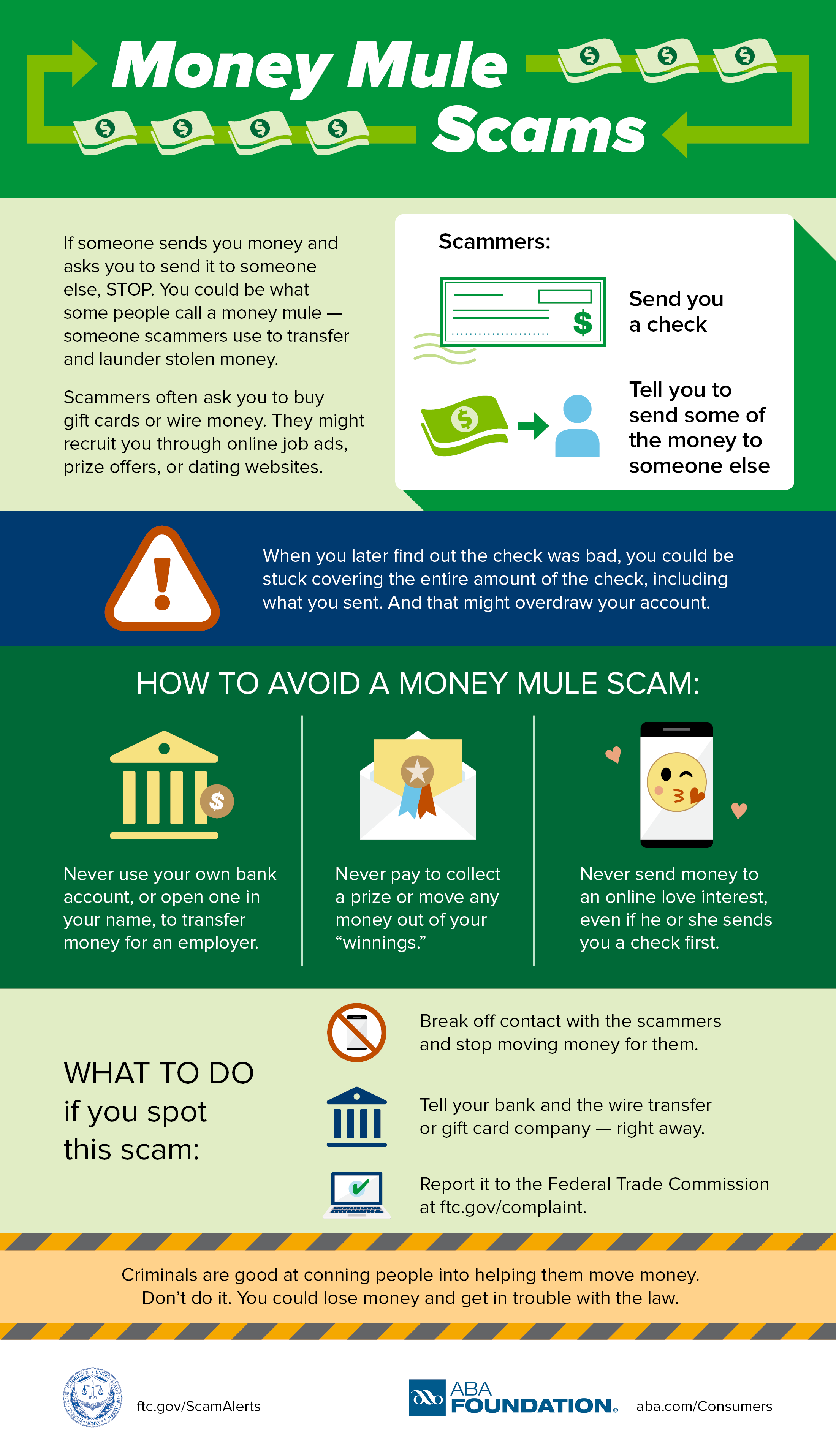Scammers may try to use you to move stolen money. If you help them, you could be what law enforcement calls a money mule.
Money mule scams happen several ways. The story often involves scams related to online dating, work-at-home jobs, or prizes. Scammers send money to you, sometimes by check, then ask you to send (some of) it to someone else. They often want you to use gift cards or wire transfers. Of course, they don’t tell you the money is stolen and they’re lying about the reason to send it. And there never was a relationship, job, or prize. Only a scam.
What happens next? If you deposit the scammer’s check, it may clear but then later turn out to be a fake check. The bank will want you to repay it. If you give the scammer your account information, they may misuse it. You could even get into legal trouble for helping a scammer move stolen money.
How can you avoid money mule scams?
- Don’t accept a job that asks you to transfer money. They may tell you to send money to a “client” or “supplier.” Say no. You may be helping a scammer move stolen money.
- Never send money to collect a prize. That’s always a scam, and they might be trying to get you to move stolen money.
- Don’t send money back to an online love interest who’s sent you money. Also always a scam — and another a way to get you to move stolen money.
Criminals are good at making up reasons to help them move money. Don’t do it. The money may be from other people they scammed. You may be helping criminals hurt people just like you.
If you think you might be involved in a money mule or money transfer scam, stop transferring money. Notify your bank, the wire transfer service, or any gift card companies involved. Then, report it to the FTC at ftc.gov/complaint.
Please share this information and the FTC’s new infographic, developed with the American Bankers Association Foundation. People may be embarrassed or afraid to talk about their experiences, but you can help. A simple phone call, email or text, saying “Look what I just found” may make a difference in someone’s life.

